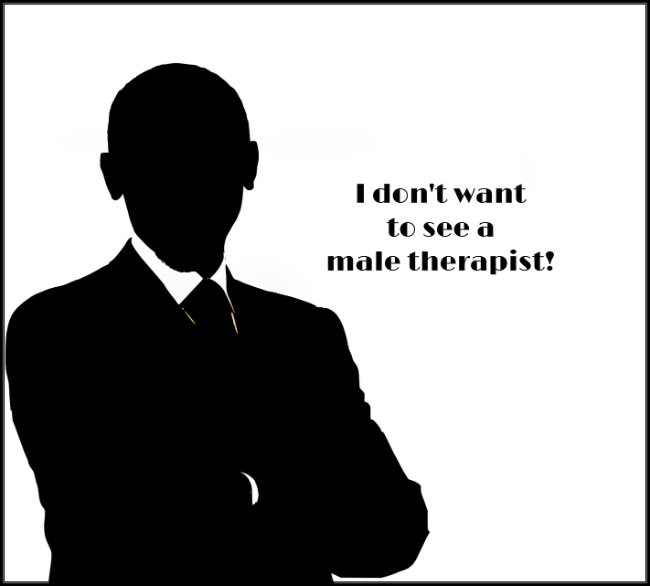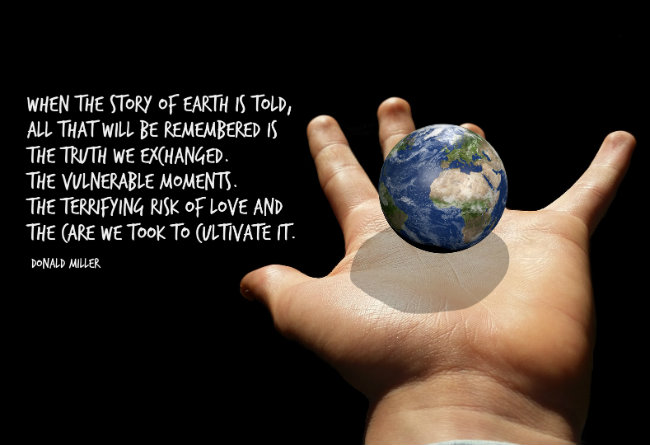
Years ago, when I was studying to be a therapist, there was an expectation from the counselling school to see a therapist myself. After all, if I’m going to be a counsellor, shouldn’t I be willing to go through counselling myself?
I do think it’s important for each therapist to feel, in their body, what happens while you wait in the counselling waiting room for your first appointment. Therapists need to know that gut churching feeling of what it is like to take a deep breath and decide to jump into saying something out loud for the first time that has only been thought of a thousand times.
Fair’s fair. If a therapist is gonna sit in the therapist’s chair, s/he needs to be willing to sit on the client couch, too!
But just because I was studying to be a therapist didn’t mean I was looking forward to being in therapy myself. I had the same concerns as my clients have. How would it go? How would I talk about the really hard stuff? Would I like the therapist? Would the therapist like me? Why was I asking myself questions about being liked enough?
I was apprehensive. I knew being in therapy would a good thing for me personally and to prepare professionally. I was curious about what experience would be like. I was looking forward to how I might grow and learn more about myself–but therapy is a vulnerable experience, and so I was nervous.
I believed the old adage that a therapist can’t take a client farther than they themselves have gone. I didn’t want to be a therapist that would hold my clients back, so I wanted to invest…but then I could find good reasons to hold off on making an appointment. Like I had to wash my hair, or wipe the counter, or fold a load of laundry. It was at moments like this that cleaning out those gross containers in the back of the fridge I had forgotten about seemed like they should be cleaned.
Y’know, important stuff that meant I would have to call another day.
I was talking with a classmate one day about making the call, and I was asking her for ideas about which therapist I should make an appointment with. So, I asked her the question, “Which female therapist do you think is the one I should see?”
And she answered (already picking up on the subtleties that suggested that she would be an awesome therapist), “Why are you only asking me about female therapists?”
“Because I can’t see a male therapist. A male therapist wouldn’t take me seriously.” I responded automatically. I knew, from experiences in my life, that a male therapist wouldn’t hear my story profoundly, that he would minimize my pain, trivialize my concerns, and generally be trite with me, because I was just a girl. Just Carolyn. And men in authority don’t listen deeply to Carolyn. I knew that
And she said nothing. Didn’t have to.
I heard myself.
She just looked at me silently, letting the moment sink in.
After a long pause, she cocked her head slightly to the side, gently lifted one eyebrow, and softly said, “You know what this means, right?”
<Insert very heavy sigh here> “Yes,” I knew, and I reluctantly moaned…”I will go see a male therapist.”
And I did. I didn’t like it. I didn’t want to. But I did.
Seeing a male therapist challenged the assumptions that were beyond my conscious awareness about men and gender and power and empathy and presence in a way that seeing a female therapist could not have evoked.
I didn’t just talk about some of my gender based concerns, and unconscious internalized patriarchy…I lived and experienced them. I had to work through the way I saw my place in a world that was half men in real time, not just intellectually in conversation.
So often, when folks call our office to book an appointment, they presume they will work with a female.
Women want to work with female therapists:
- often seeking to be understood and heard–and assuming a male could/would not understand or hear deeply
- because there is an assumption that all relationships with men will become sexualized or manipulative with a power imbalance skewed against them and so there is an assumption, somehow, that a male therapist can’t be safe to talk to
- feeling that as a client, they need some gentleness and compassion and feeling that only women can provide that
- concern that an effective therapeutic relationship may create feelings that are confused with romantic feelings. For some adults, the only care and kindness they know in adult relationships involve romantic feelings.

Men often want to work with female therapists:
- feeling that they will be vulnerable and exhibit their soft and tender parts (which all humans rightfully have) and that might be perceived as “weak”, as opposed to courageous authenticity. There is a strong cultural prohibition of men being weak in front of other men.
- a concern than a male therapist will judge them, offer quick advice, or generally not deeply hear them
- a desire to be nurtured and cared for, feeling that a women is better able to provide that (or somehow, that it is more acceptable to receive it from a female therapist than a male therapist).
There are certainly some clients for whom seeing a therapist is such a challenge that having a female therapist is what they need…for examples, childhood sexual abuse survivors where the perpetrator was male. If walking in the door is almost impossible, please see whatever therapist makes it possible to show up!
Other folks, when they are selecting a therapist, may find seeing a male therapist as a challenge, but it is a “just right” challenge…it will push a person, within tolerable limits, to bump up against issues that are beyond their conscious awareness. When explored, the power these assumptions and untold stories have through their unawareness is dismantled, and it can free a person up to relate differently in all relationships.
I work closely with two male therapists, Michael Quiring and Lindsey Walsh. Caring, kind, gentle yet strong men who listen deeply…not unlike the male therapist that I (reluctantly) saw years ago during my graduate studies.
At the beginning of January this year, as I reflected back on previous years, I sent a thank you email to my old therapist. He lives in California where I studied, so I haven’t seen him in a lot of years. I told him of a couple of memories I have of being with him…how those times fundamentally changed how I saw my place in the world.
I remember being mad at him for something he had said once. After a week of stewing about it, I came back to the next session and told him about how I thought he misspoke. Took everything I had to challenge him on it. I wasn’t sure how he was gonna respond. He was great. He listened to me, and he clarified. Once I knew what he had said (which was different than what I had heard), it resolved. The victory of growth had been in the safety of the therapeutic environment to challenge him, and see that I could be taken seriously.
Those times with him helped me understand the way I had been acculturated as a female, designed to multitask and look after everyone always. Our conversations challenged the way I saw myself, and gave me permission to draw boundaries, decide what to focus on (and that would involve making choices to say “no”). I thanked him for the influence he had in my life.
He sent me a short and thoughtful email back in response, ending with:
Learning what to focus upon and emphasize in life to maximize our fulfillment and reduce stress and unnecessary tension can be challenging until the journey’s end.
To your journey……..
…To your journey too!






Write a Comment